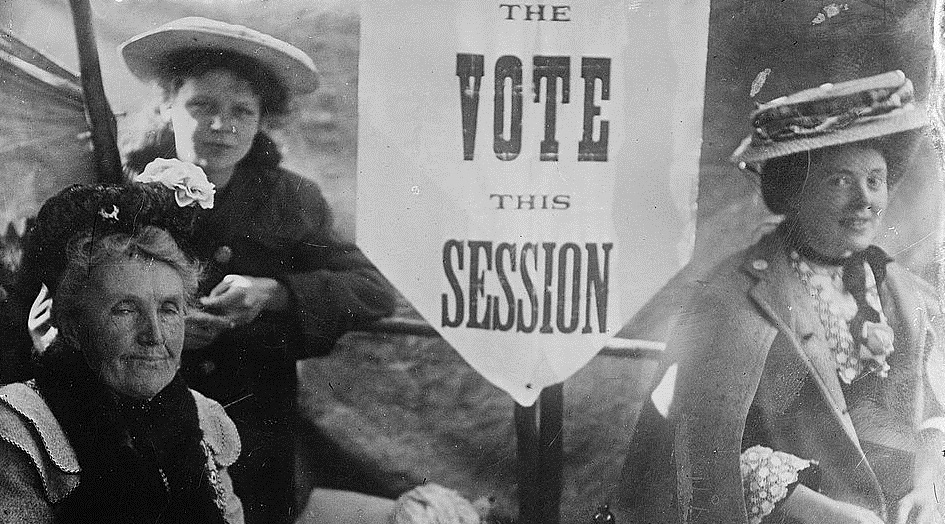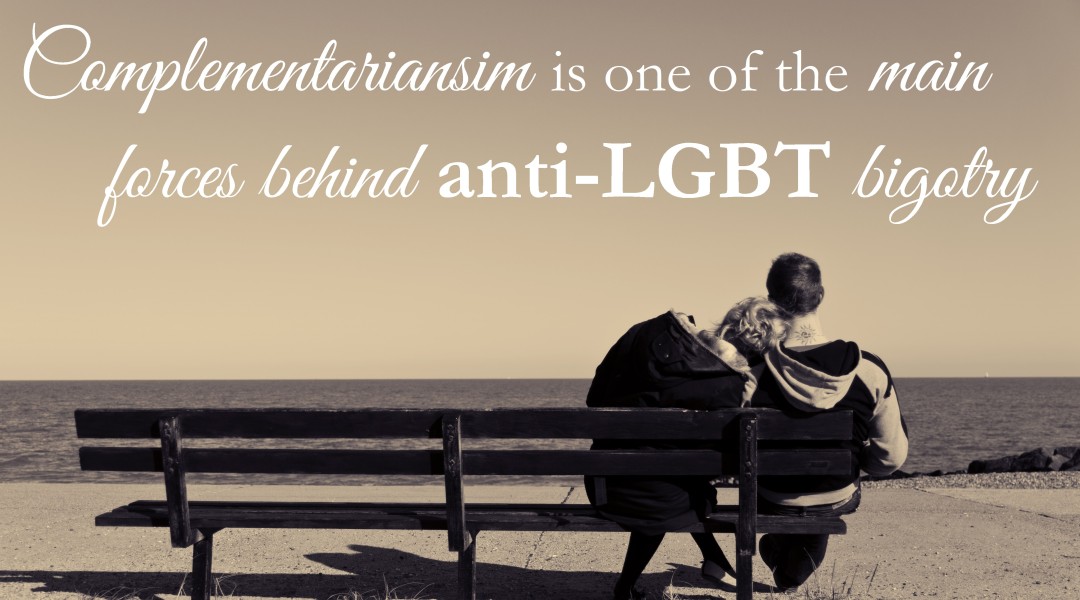“How can you be both a Christian and a feminist?”
I get asked that question somewhat regularly– by both conservative Christians and secular feminists, as well as people who don’t necessarily identify as either but are still confused. At this point, it’s easy to see why. While the early American feminist movement included religious women (for example, the Women’s Christian Temperance Union), the common perception of evangelicalism in America is pretty staunchly anti-feminist. From Phyllis Schlafly to Mary Pride’s The Way Home, it’s clear that most Christian leaders have consistently opposed feminism since the 60s. Today it’s resulted in things like Concerned Women for America, the Council for Biblical Manhood and Womanhood, and a whole slew of books and conferences and lectures and sermons and political rants on how feminism is destroying America.
There’s a lot of very loud people, like Matt Walsh with his “Feminism is not your friend” screed (which I responded to), and quieter people, like Kristen Clark, who argue that “Feminism and Christianity Can’t Mix.” Then there’s detailed explanations from sites like GotQuestions, explaining that “Feminism is based in arrogance, and it is the opposite of the call to the born-again believer to be a servant.”
I’ve taken a lot of time to respond to this question from the Christian perspective (like here and here), and there’s plenty of other people out there explaining why feminism and Christianity are perfectly compatible (like the Junia Project). However, I’ve never approached this question from a secular perspective, and I’d like to. While I don’t think that you can’t be a Christian and a feminist is embedded into secular feminists as much as it is into Christian conservatives, I have bumped into the sentiment in person and online. There’s this feeling that if I were a real feminist I’d realize how diametrically opposed the Bible is to women’s rights. As long as I’m crippled by my loyalty to a misogynistic religious text, I’ll never be truly liberated, never able to truly embrace equality.
I usually direct those people to feminist theology, but I also want to tell them that they shouldn’t dismiss Christian feminists because you desperately need us.
Christian feminism is the only way the feminist movement can ultimately be successful.
From the brief history lesson above, it should be obvious that the conservative animus against women is driven largely– and arguably, almost totally– by religious arguments. I don’t think anyone could argue that religion is the only reason for misogyny (see practically anything Richard Dawkins has to say on the matter), but I am convinced that many people who would otherwise embrace egalitarian positions are trapped by sexist interpretations of Scripture.
Many Christians are misogynistic, and would be so regardless of how they’re taught to understand the Bible. That’s indisputable. But, as feminist theology shows, it’s not inevitable that Scripture be used to enforce the subjugation of women, or to compel women to submit to men, or for women’s gifts of leadership and teaching to be ignored. Without these assumptions that many Christians make about roles for men and women, there wouldn’t be a political platform for the “Religious Right” to build on. Political leaders would doubtlessly continue to be sexist, but it wouldn’t carry the weight it currently does with so many Christians. Christian feminism could deconstruct one of the most significant tools the right wing currently possesses: an electorate in lock-step with their socially conservative values.
Even concerns about reproductive justice could be more fully addressed. Many Christian feminists are pro-life (I myself am pro-choice and don’t see any conflict between that and my faith), but the ones I’ve interacted with and read aren’t interested in overturning Roe vs. Wade; instead, they’re committed to making sure women have a choice. Women have abortions for all sorts of reasons, but many of those women wouldn’t abort if their life circumstances hadn’t made it impossible for them not to. I might disagree with the pro-life position, but I will work with anyone interested in bringing paid maternity leave or making contraception and proper sex education widely available.
Christian feminism could bring a holistic approach to reproductive justice to the forefront. Merely being pro-choice and wanting to keep abortion legal and accessible isn’t enough. Christian feminists frequently look beyond the legal battles over TRAP laws, even thought they’re important, to the beauty and value in making sure each of us is liberated to pursue her passions, whatever that looks like. To carry our pregnancy to term if we want to. To be able to stay at home without repercussions if we want to. To embrace a vision of womanhood that isn’t defined by masculine and patriarchal standards for success, like wealth or power.
And, finally, feminists need Christian feminism because we’re in the trenches in a way that secular feminism simply isn’t. There’s still a huge host of battles left to be won– from sexist dress code policies to the lack of diversity in STEM fields to our under-utilization in all areas of leadership to our misrepresentation in the media– but Christian feminists are combating a fortified position. We fight against a hyper-masculinized articulation of God and Jesus. We fight to wrest away control of our faith from those who proclaim that only men are fit for leadership. We fight to bring love and compassion into our theology.
Being focused on matters of faith and ideology means that we’re focused on overturning the presuppositions and attitudes that drive dress codes, diversity in leadership, and how we’re perceived in the media. We’re boldly declaring that men and women are equal before God. We’re struggling against the idea that women were created to be subservient, that men are our divinely ordained rulers. We roar that God’s vision for their children is more varied and complex and stunning than any patriarchal rendering of it could possibly imagine.
Without us, your comrades in arms, Christian culture will go on blithely ignoring how their religious practice oppresses women. Without us, pastors will continue preaching ideas that cause violence against women. Without us, misogyny will continue to have a veneer of respectability, endorsed by power-hungry spiritual leaders.
Without us, there will never be an end.
Note: I am speaking into the American context, where Christianity is the dominant religion and is a controlling force in our culture. Obviously, Christian feminism would be next to useless in cultures where other religious traditions hold sway. However, I do believe that feminists who are also religious are necessary in any culture that isn’t predominantly secular.


